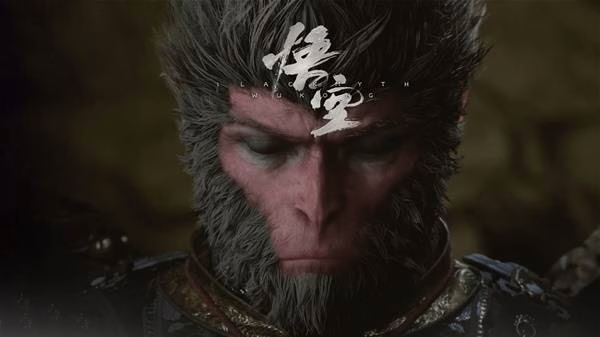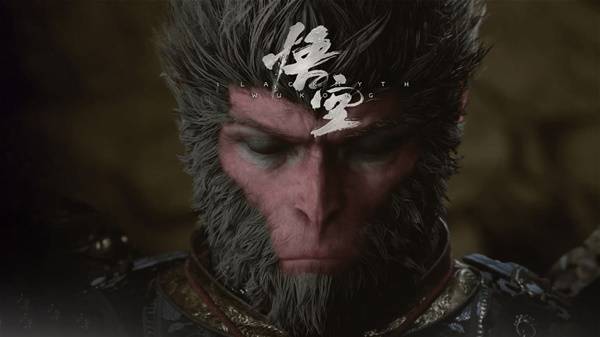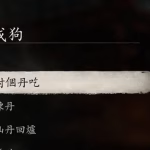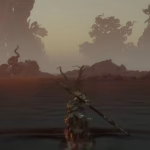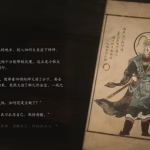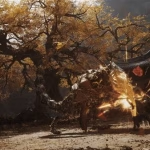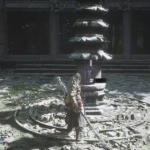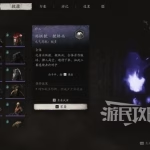Page 1: Part 1 – Eyes to See the Joy
Expand
There are six chapters in Black Myth Wukong, which also correspond to the six root kits, so what is the plot of each chapter about? Please see the following by “IsaacTruman” to bring the “Black Myth Wukong” full chapter plot detailed explanation, I hope it is useful to you.
Part Zero – General Overview
When it comes to the plot, for me it’s generally important to look at it from a holistic perspective. Old Monkey actually starts off by telling the Heavenly Orders that the six roots will be gathered to resurrect the Great Sage, but in the realm of the Stone Egg, Old Monkey tells us that the intention has already been dispersed, and that the Great Sage can’t be resurrected any longer. This process is not about “gathering the six roots of the Great Sage to resurrect the Great Sage”, but about finding the roots for other purposes.
The question then arises: since the Great Sage cannot be resurrected, what exactly is this “other purpose”?
The production team didn’t tell us, the old monkey didn’t tell us, the Shadow God didn’t tell us, and the animation CG didn’t tell us. This is a question that has been on my mind since I finished Black Myth. Since we can’t answer that question, we’re going to have to approach it from a different angle: since we don’t know why we’re looking for the Roots, we’re going to have to figure out what the Roots actually are.
The six roots are found in the original text. In the fourteenth chapter, called “The Heart of the Monkey Returns to the Right Six Thieves Without a Trace,” the Wukong and the Tang Monk meet six thieves, named the Eye to See Joy, the Ear to Hear Anger, the Nose to Smell Love, the Tongue to Taste Thoughts, the Opinion to See Desire, and the Body to See Worry. These six thieves symbolized the six roots, and were all killed by Wukong, who was rebuked by the Venerable Master Sanzang and left in anger. According to the theory, if you give up the six roots, you will be pure, but considering the anger of Wukong, has he given up the six roots? Obviously not, he listened to the rebuke of the Venerable Master Sanzang and could not hold back his anger, which is one of the manifestations of the “ear to hear anger”, not being able to listen to bad words, not being able to listen to rebuke, not being able to listen to dissenting views with his own. To kill the six roots is not to give up the six roots, because to kill and give up the six roots itself is something that people with the six roots would do, the right thing to do is to keep one’s own six roots, but to cultivate the mind not to be controlled by them, and only in the end will one be able to obtain the right result.
In other words, Wukong’s six roots are not “good qualities,” but rather a “wrong manifestation” of him. His six roots are in fact his own six errors, six qualities that make him neither perfect nor good nor Buddha, or rather “evil”. This is also described by Old Monkey at the end in the realm of the Stone Egg. Collecting the Six Roots is not for the purpose of utilizing the Six Roots; on the contrary, the things experienced on the way are more important than the Six Roots, and observing the evils of the Six Roots and realizing the way of the Six Roots is even more valuable to the Heavenly Orders than collecting the Six Roots’ power. The role played by the six roots throughout the plot is discussed next, chapter by chapter.
Part IEyes to See Joy
The first chapter of the story, when all is said and done, is relatively easy to understand, but the whole thing still needs a coming together.
Let’s talk about the original first. In the original, this time only Sanzang and Wukong two people came to the Guanyin Zen garden, met the Golden Pool Elder, the Elder saw the robe will not be able to walk the road, he really want this robe, Guangzhi proposed to move the sword will be killed, leaving the robe, the Golden Pool Elder listened to the full of joy. Guangmou proposed to light a fire to burn down the place where the Tang Monk lived. Wukong heard about it and found Guangmou Tianwang to borrow a fire shield. Wukong blew out in one breath and scraped the fire across the whole temple, making Elder Jinchi eat his own words and die by suicide with hatred. The robe is still missing, but it turns out to have been stolen by the Black Bear Spirit who took advantage of the fire to see the evil intentions. In the end, Wukong and Guanyin defeated the black bear, and Guanyin took the black bear to guard the mountain, after which Wukong and the Tang Monk left together.
In the CG at the end of the first chapter of Black Myth, the production team has adapted the plot a bit, but of course, the CG needs to be deciphered, so I will briefly describe my understanding:
The black bear spirit and Jin Chi knew each other a hundred years ago and became good friends. The black bear knew Jin Chi’s Buddhist teachings and wanted to be good, so he taught Jin Chi some longlife techniques and gave Jin Chi some money to help Jin Chi go to the city to practice in the monastery, but Jin Chi didn’t have a goodlooking robe to prove his status, leading to an inferiority complex in the early years, which gradually encouraged his greed, for which he put on a better and more beautiful robe and practiced in the monastery in the city. He changed his robe into a better and more beautiful one, and stood out among the monks. The everlasting Jin Chi eventually became the elder of the Guanyin Zen Temple. Under his stewardship, the monastery collected a lot of robes and goodies until the arrival of the Longevity Monk. He saw the Tang Monk’s robe and had evil thoughts, but the Black Bear Spirit, not knowing whether he also wanted the robe or didn’t want his old friend to be so vile, took it away, and eventually, Elder Jin Chi died in a fire and was transformed into a ghost, while the Black Bear Spirit was subdued by the Bodhisattva, just like in the original movie.
Years after the scriptures were taken, the Heavenly Court summoned a large number of capable people to besiege the Mountain of Flowers and Fruits (from the animated CG in Chapter 5), and the Black Bear was invited by a “dragon lady” to take part in the siege, along with the advice of the Bodhisattva Goddess of Mercy to remove the golden hoop. Since his merit is to “pay for his sins”, Erlang Shen divided the eyes of the Great Sage’s Root Weapon and sent him back to the Black Wind Mountain. (I’d like to know what his crime was, but I haven’t figured it out yet… I can’t say that he delayed going until the very end and missed the opportunity to fight?) After returning to Black Wind Mountain, he rebuilt the Guanyin Zen Center. In order to establish his authority, the Black Bear Spirit utilizes the Root Vessel and resurrects his old friend Lingxu Zi with a wolf demon who volunteered to die, but after realizing that he was resurrected by sacrifice, Lingxu Zi hangs himself, and he has to bring in a Pale Wolf Spirit to take the place of the wolf demon’s leader (which is the one we fought as Lingxu Zi), however Lingxu Zi doesn’t get along with the wolf demon and ultimately ends up forming a standoff with Guangmou Zhi. The snake spirits, on the other hand, have Guangmou as their leader. Black Bear has newly ordained a whiterobed showman, but he is mysterious and unpredictable. Under the bitterness, Black Bear wanted to resurrect Jin Chi to discuss Zen together, however, after Jin Chi was resurrected, he became a ghost and ran all over the mountain. Eventually, Black Wind Mountain became what it is today, while Black Bear spends the whole day longing and sighing, without further use of the root, placing it on top of a high building and worshiping it alone.
In the last egg, the old monkey’s judgment on the Great Sage’s fault of “seeing the joy in his eyes” was that he wanted to take away the Sea Defining Needle as soon as he saw it, so what difference was there between him and the Black Bear of the Golden Pond? The first root of the Great Sage’s “eye to see joy” is in essence greed, the desire for wealth and power, insatiable greed and endless pursuit. The Monkey King’s pulling away of the Sea Needle, the Black Bear’s seeking of the Longevity Monk’s robe, and the Black Bear’s later building of a tower to deceive the lesser demons to amass wealth and power are all manifestations of the joy of seeing with one’s eyes. The Heavenly Ordained One’s journey is to see and experience the deeds of these people and demons. Jin Chi Elder in the past after being defeated, finally repentance, when he said that the robe I do not want, it is more like a kind of finally free from the heart of greed, more focused on retaining their own already important things (Guangzhi Guangwu), however, everything has been the past, the empty remaining echoes of a hundred years ago. The Black Bear Spirit, when faced with the imminent loss of his own life, also throws down the Great Sage Root and gives it to the Lesser Sage. This is a plea for forgiveness, and it can also be a renunciation; whether he repents at this point is unclear, but he’s not happy with everything in the story, so I’m sure there’s some renunciation of it all.
Throughout the first story titled Fire Shining on the Black Cloud, disregarding everything in order to satisfy one’s own greed is the central leadin, and the fault of the plague that is Eyemihei. Whether or not the Heavenly Ordained will have any thoughts after going through this, and whether or not they will come to realize the fault of greed, is the very core of what connects to this story. In my opinion, getting the eye to see joy fits in with the fact that the Heavenly Ordained Man will no longer see and be joyful after understanding this calamity, precisely so that the Heavenly Ordained Man will be able to seek but not covet. And here the whiterobed showman, as a helper sent by Erlangshen, is responsible for helping the Heavenly Ordained Man find Elder Jinchi and realize the fault of the EyeSeeing Joy. In my opinion, Elder Jin Chi is not a completely evil person after all, or he wouldn’t have been able to realize the Buddha’s teachings, but his obsession needs to be tempered by someone. The meaning of renunciation in the Black Bear Spirit’s surrender is still too subtle, and it may also be killed by a momentary fight. If the Heavenly Ordained One cannot realize the Transgression of Eye Seeing and Happiness, then if he subsequently gets the other six roots, I am afraid that he may also make the same mistake as the Great Sage did back then.
Some people may say here, that wrong ah, if I still open the treasure chest after, this destiny is actually very heavy greed ah? No, it is not that the elimination of all practices means the elimination of this root, and the killing of the six prohibited roots is precisely the existence of six roots in the body. This is a very complex situation, human greed is also the desire to promote their own development, but greed is too much, the wrong cause and effect will lead to the eyes to see the joy of the past. As the Goddess of Mercy said, “If I don’t put on the robe, how will the world know that my dusty karma is broken and the golden sea is dry?” The robe is worn only by those whose earthly ties are broken and whose golden sea is dried up; the former is the cause and the latter is the effect. But greed makes Jinchi reverse the effect for the cause, and collecting because he wants to, and proving that he has become a great Taoist scripture by putting on the robe is no longer greedy, but wrong. It is the same in the heavenly destiny person, the heavenly destiny person is in order to strengthen themselves, in order to allow themselves to be able to defeat the enemy and progress and search for treasures, not in order to search for these treasures to show off their wealth to prove that they are powerful and search. (Of course it is a game after all there are also collecting parties to show off, the player and the Divine Fate are not in conflict)
Night “Black Myth Wukong” interactive map is now online, the map not only includes the land temple and other locations, the collection of items at the point, but also marked all the Boss, hidden branches and important props at the point, according to the map to go easy to collect all.
关于此主题的更多信息:黑色神话:悟空传
编辑夏目隆
Next page.
Friendly tip: support keyboard left and right keys “← →” turn page
这篇文章是否解决了您的问题
[ad_2]
